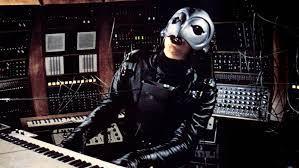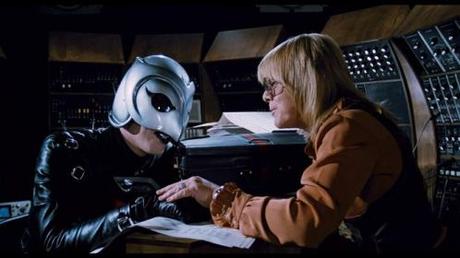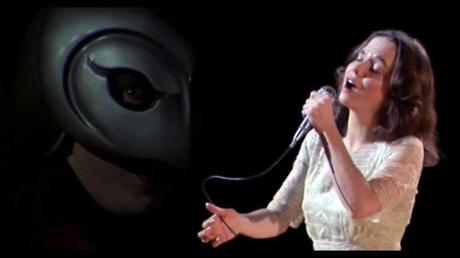Ever since Lon Chaney struck fear into the hearts of moviegoers in 1925, the Phantom of the Opera has been a favorite tale of filmmakers. The Gaston Leroux tale of has been seen through the lens of everything from a gritty horror film to a grand musical. But in 1974 a young Brian DePalma decided this classic gothic tale needed a flashy modern upgrade and the result was the cult classic Phantom of the Paradise. Combining grim horror, campy humor and catchy music, this film has endeared itself to fans of cult cinema and once it was given a long awaited Blu Ray release which has brought it to the attention of a whole new group of cinephiles.
seen through the lens of everything from a gritty horror film to a grand musical. But in 1974 a young Brian DePalma decided this classic gothic tale needed a flashy modern upgrade and the result was the cult classic Phantom of the Paradise. Combining grim horror, campy humor and catchy music, this film has endeared itself to fans of cult cinema and once it was given a long awaited Blu Ray release which has brought it to the attention of a whole new group of cinephiles.
Opened by the baritone voice of Rod Serling, the film introduces us to the mysterious producer, Swan who is searching for the right sound to launch his new act. He finds that music courtesy of the humble singer/songwriter Winslow Leach. When he tries to confront Swan and get the credit he is due, Leach is made a fugitive and has his face and vocal chords permanently mutilated. This forces him to don a black and silver costume and mask to hide his disfigurement. The nefarious producer, however makes a Faustian bargain with the composer to write a pop rock opera for his talent to perform at his venue, the Paradise. Winslow Leach becomes enamored with a singer named, Phoenix who's voice matches perfectly to what he has written, though she is terrified of his monstrous appearance. Swan sees this as a weak point to manipulate the Phantom as he

Simply put Phantom of the Paradise is a movie that lovers of cult and underground cinema must-see. The combination of the Phantom of the Opera with the audio and visual aesthetics of 70's glam rock screams of cool in every scene. Though he is still early in his career DePalma still demonstrates a strong eye for visuals which has become a staple of his work. Every shot is a retro feast for the eyes from the costumes to the sets. One of the most memorable sets of the film was fittingly the Phantom's lair or "electronic room". Adorned with no shortage of audio recording equipment for him to fine tune his music with every resource available. Ironically Sissy Spacek who would star in DePalma's next movie which would be his breakout hit Carrie, worked as one of the set designers for

Of course what really hooked the fanbase of this film in is the music. While I am not an adept music expert I will simply say, it kicks ass. The soundtrack proudly wears its influence of the likes of; Queen, David Bowie, and the Who on it's auditory sleeve. Famed songwriter, Paul Williams, who also plays the conniving Swan in the film, deserves all of the applause for his work on the soundtrack which rightly earned him an Academy Award nomination.
When it was initially released Phantom of the Paradise did not set the box office afire by any stretch of the imagination. But where American audiences failed to recognize genius, the film found success when it opened in Canada. More specifically, the city of Winnipeg where the film played in theaters off and on for over a year to sold-out crowds. This audience largely deserves the credit for spreading the legend of this film and turning it into the cult classic it is today.

